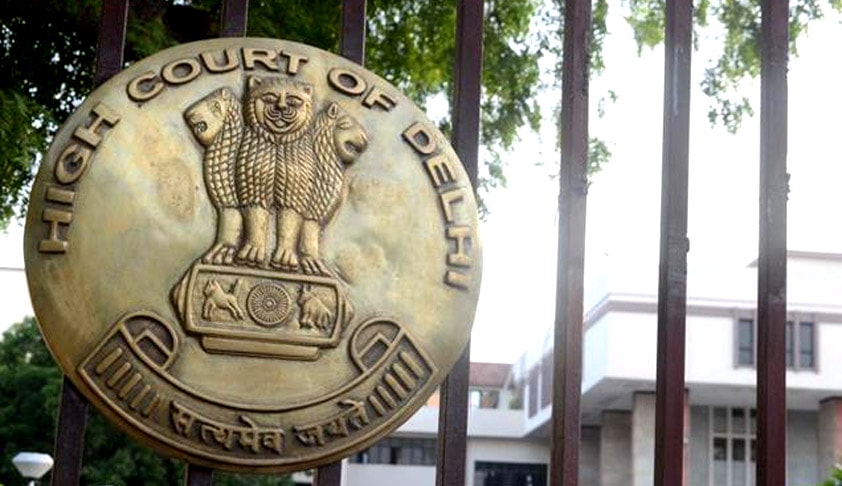Allied Blenders & Distillers Pvt. Ltd. v. R.K. Distilleries Pvt. Ltd.
Allied Blenders & Distillers Pvt. Ltd. v. R.K. Distilleries Pvt. Ltd.
FAO (OS) No. 251 of 2016
Decided on: 28th February, 2017
Hon’ble High Court of Delhi

Brief Facts:
Appellant filed a civil suit for infringement of trade mark, passing off and infringement of Copyright claiming to be proprietor of the mark ‘Officer’s Choice’ and its label in the Hon’ble High Court of Delhi. As per the Appellant, the Respondent’s use of the mark ‘Regular Choice’ and its label constituted infringement of trade mark, passing off and infringement of Copyright of Appellant.
The Plaintiff claimed in their plaint that the Hon’ble High Court of Delhi has jurisdiction to entertain and try the present suit as the Appellant apprehends that the Respondent may launch products under the impugned mark in Delhi and thus cause of action has arisen in Delhi, thus Hon’ble High Court of Delhi would have jurisdiction to entertain and try the present suit.
Respondent filed an application under Order VII Rule 10 of the Code of Civil Procedure, 1908 for return of plaint on the ground that the Hon’ble High Court of Delhi does not have jurisdiction as no sales have been made in Delhi and the long arm provisions under the Trade Marks Act, 1999 and Copyright Act, 1957 will not come to aid of the Plaintiff as the Plaintiff only has a branch office in Delhi, whereas his corporate office is in Mumbai.
The application was heard and the Leaned Single Judge observed that the Hon’ble High of Delhi does not have territorial jurisdiction to adjudicate on the present dispute as no part of cause of action has arisen in Delhi. The application of the Respondent was allowed. Aggrived by the said order, Appellant filed the present appeal.
Appellant’s Arguments:
- Appellant had a credible apprehension that the Respondent would start selling whisky under the impugned mark ‘Regular Choice’ in Delhi
- Apprehension in itself constituted cause of action and conferred jurisdiction on the Hon’ble Court.
- The threat of launch of the Respondent’s product under the impugned mark in Delhi, independent of the fact that the product has been launched in Andhra Pradesh, constituted a cause of action.
- The observation of the Learned Single Judge that no part of cause of action has occurred in Delhi is incorrect.
Respondent’s Arguments:
- Plaintiff’s registered office is in Mumbai;
- Defendant is selling its products in Andhra Pradesh since 2011.
- Mere apprehension is not enough, there has to be a basis for apprehension.
Court’s observations:
What is important is that the threat of selling the goods under the impugned trade mark in Delhi would by itself confer jurisdiction on the courts in Delhi. It is another matter that the threat perception would have to be justified, prima facie, when the application filed by the plaintiff under Order XXXIX Rules 1 & 2, CPC would be considered or later, on merits, when the suit itself is taken up for disposal. However, in a consideration under Order VII Rule 10 CPC, the court must proceed on the assumption that whatever is stated in the plaint is correct and, therefore, it would also have to assume that the threat perception or the apprehension on the part of the plaintiff as stated in the plaint is also correct. That in itself would amount to a part of the cause of action.
As per the averments in the plaint, there is a reasonable and credible apprehension that the impugned products would be launched in New Delhi and thus constitute cause of action for instituting a suit. The Learned Single judge has fallen into error when he opined that no part of cause of action has occurred in Delhi.
Clearly, the apprehension of the respondent launching its product under the impugned trade mark in Delhi, on a demurrer, would constitute cause of action or at least a part of the cause of action. Therefore, independent of the fact that as to where the Appellant’s registered office or subordinate office was located, under section 20(c) of the CPC itself, this court would have territorial jurisdiction because part of the cause of action had arisen in Delhi as per plaint.
For the purposes of an examination of application under Order VII Rule 10 the court may come to the conclusion that it has territorial jurisdiction, however, this would not come in the way of the Defendant in raising a question as to territorial jurisdiction, both when the issue of temporary injunction under Order XXXIX Rules 1 & 2, CPC is being considered and when an issue as to territorial jurisdiction is being decided in the course of trial of the suit. To put it differently, while a plaintiff may succeed in demonstrating, for the purposes of application under Order VII Rule 10, that this court has territorial jurisdiction and that the plaint ought not to be returned, he may fail in obtaining an order of interim injunction on the ground that the Plaintiff’s entitlement is itself shaky because the issue of territorial jurisdiction is highly debatable and prima facie not tenable.
With this clarification, the appeal was allowed.

